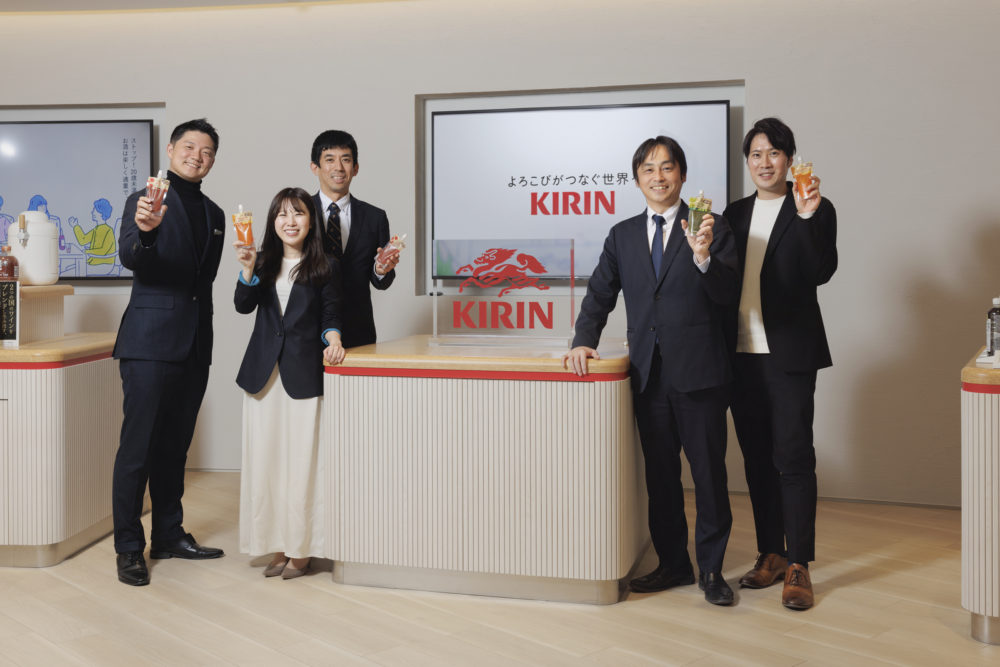
Kirin Beverage’s venture into new market territory with ‘Health Management’ solution alongside Dream Incubator Inc.
In the current business landscape, Health Management® is garnering much attention. Capitalizing on this trend, Kirin Beverage is now expanding into supporting corporate health management initiatives. However, venturing into this solution-focused business area presents a new challenge for the manufacturer. To navigate this unfamiliar territory and thrive, Kirin Beverage has partnered with the strategic consulting firm Dream Incubator Inc. (DI), recognized for its robust business production capabilities. How will the collaborative efforts of these two companies transform society? Join us as we delve into their goals and vision for this exciting new business venture.
How does the “healthiness” of your work industry measure up?
In recent years, health management has become a trend that cannot be ignored in corporate management.
Health management refers to strategic efforts by companies to manage the health of their employees from a managerial perspective. The Ministry of Economy, Trade and Industry (METI) of Japan began selecting “Health Management Brands” in 2014 to promote the concept, and in 2016 established the “Excellent Health Management Corporation Recognition System”. In addition, the government has required listed companies and others to include human capital information in their annual securities reports beginning with the fiscal year ending March 2023.
Information on employees’ mental and physical health is one of the disclosure items. In the future, companies that are not proactive in disclosing such information will receive a cold reception from investors. Why do investors demand health management from companies? Mr. Hironori Suga from DI explains the significance as follows.
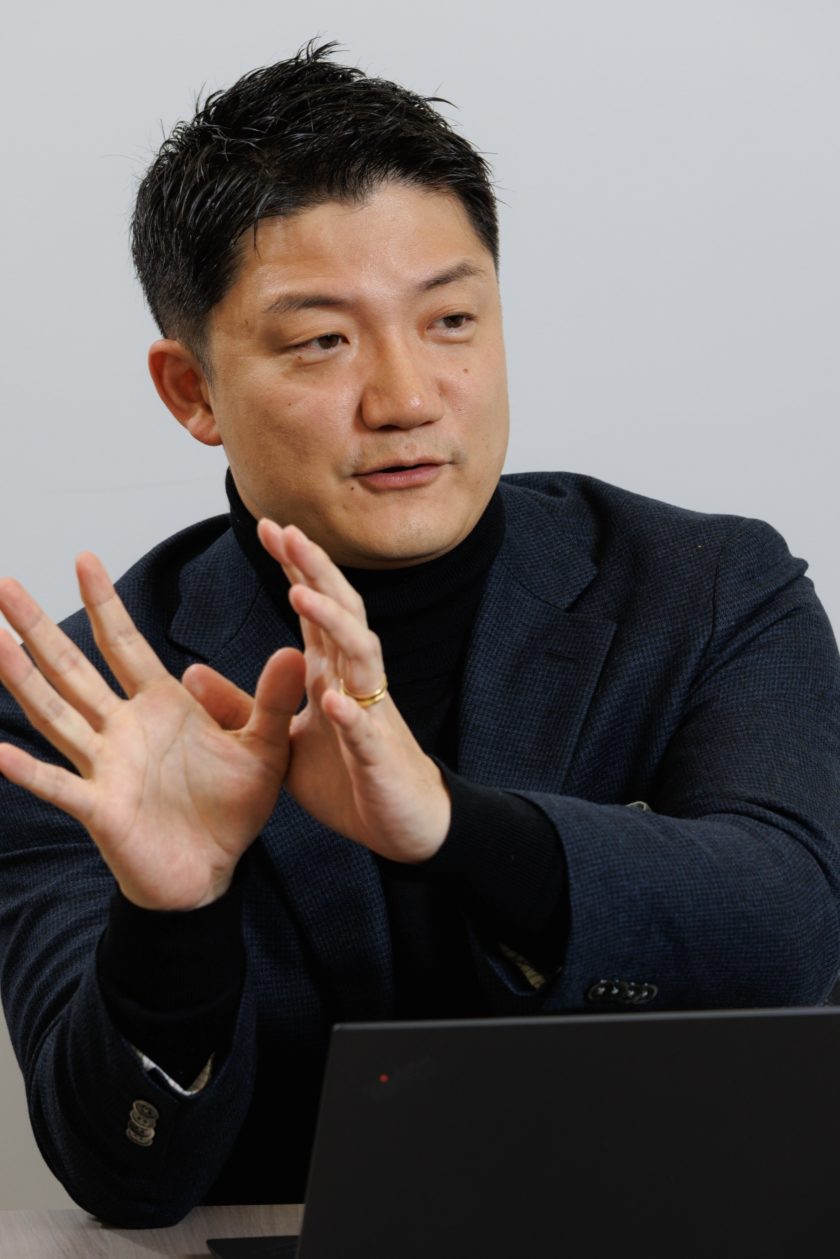
“This is because health affects productivity. Until now, financial indicators such as sales and operating profit per employee have been one measure of productivity. However, it has become evident that presenteeism (a situation in which employees are attending work but their work efficiency is declining due to health issues) also affects productivity, leading to a growing demand for its visibility.”
When people work, health management becomes an unavoidable theme across all industries. However, not all companies are keeping up with this trend. A study conducted by DI, which evaluated the disclosure status and selection of listed companies on the Tokyo Stock Exchange’s Prime Market (※) on a five-point scale, revealed that only 10% of companies demonstrated a high level of management board commitment to disclosed indicators, and implemented unique initiatives at Level 5. On the other hand, about half of the companies were at Level 1, indicating no disclosure at all.
(※)Dream Incubator Inc, “IR Survey of Tokyo Stock Exchange Prime Companies” (December 2023)
“There are differences in attitudes depending on the industry. The transportation machinery and financial sectors have a low rate of employees with health issues and a high level of disclosure. Meanwhile, the public service, energy, and construction industries have a high rate of employees with health issues and are proactive about health management because they recognize this as an issue. Conversely, the food service, retail, and wholesale industries face significant health issues, with many companies lagging in information disclosure. As a result, it’s important to consider industry-specific characteristics and the company’s challenges when promoting health management,” said Mr. Suga.
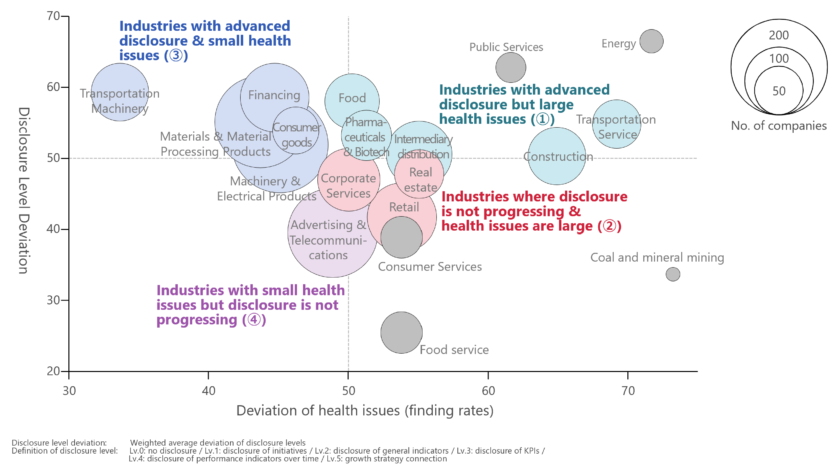
(※) Created by Dream Incubator in December 2023 based on integrated reports and IR presentation materials from companies listed on the Tokyo Stock Exchange Prime Market (approximately 1,800 companies) and statistics from the Ministry of Health, Labor and Welfare’s regular health checkup results.
From selling smoothies to solution business
The challenges of health management vary from industry to industry and company to company. Some companies are at a standstill because they do not know where to start, while others have already implemented measures but have been struggling to visualize the effects. Kirin Beverage offers “KIRIN naturals,” a total health management support service for companies facing such problems.
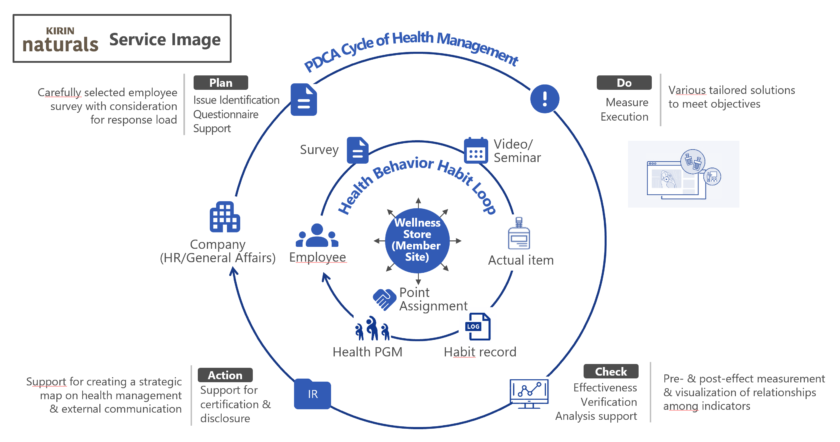
While the support is wide-ranging, the unique feature is the point system. Kirin Beverage offers a variety of health programs such as wellness videos and online health seminars to client companies. If employees of client companies take action on these programs, they are awarded points, which can be exchanged for Kirin Beverage’s smoothies and other items. Health management often stumbles when it comes to motivating employees, but this program solves that problem by incorporating incentives. This is a three-win scheme that benefits the client company, the employees, and Kirin Beverage as well.
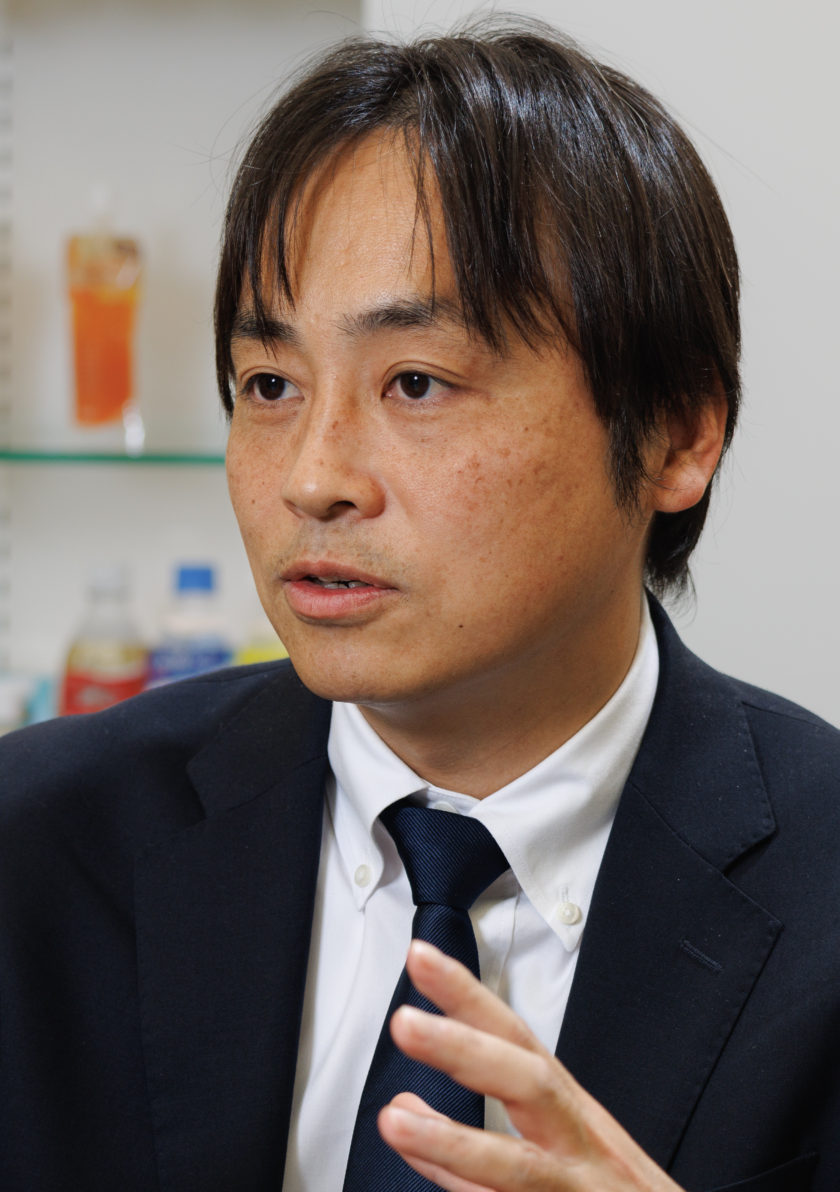
However, the initial business model when it was launched as a new business in 2017 was simply about selling smoothies in fixed locations. According to Mr. Zenda Hideki of Kirin Beverage, the business model was not in its current form from the beginning.
“When we started selling smoothies to corporate customers, we began to receive inquiries from customers asking if there were any measures they could take to foster health awareness among their employees. So, in 2018, we began offering health seminars as a free service to customers who ordered our smoothies. In response to strong inquiries, we began offering health seminars for a fee in 2019. We have shifted from a product sales business to a solution business,” revealed Mr. Zenda.
However, the concept of solutions business is an uncharted territory for a manufacturer. After struggling with trial and error, the company started to discuss with several consultants about their sales strategy. A proposal from DI to “create a solution that essentially solves corporate health management issues,” stood out, leading to the selection of DI as a partner.
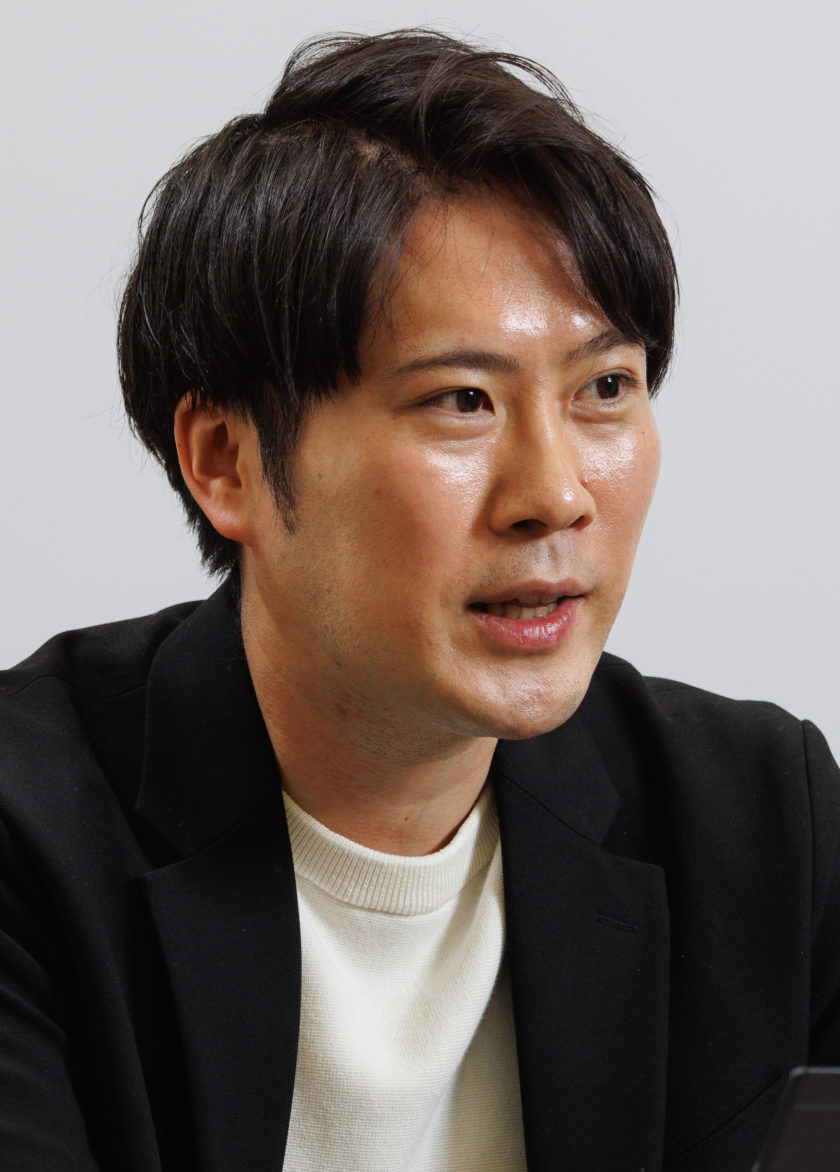
Why did DI propose the health management approach? DI’s consultant Mr. Ryo Itasaka explains as follows.
“In producing new business, we focus on three requirements. First, the business must be able to address social issues. Second, the business must meet real user needs. Third, the business can leverage the client’s strengths. For Kirin Beverage, focusing on health management solutions balanced these three factors, considering their dedication to health science.”
Incorporating Health Management in the workplace increased conversations and boosted engagement
The Kirin Beverage “KIRIN naturals” team consisted of five members. The DI team consisted of five members, including one on-site consultant, who provided support for the overall design of the solution and the design of the functions that should be included in the specific menu and program. However, even if a scheme was created, it would be difficult for a company to introduce it unless the scheme’s effectiveness could be verified. Therefore, in the fall of 2023, we decided to conduct a Proof-of-Concept (PoC) experiment on the health improvement program within Kirin Beverage to visualize the effects of the program. Kirin Beverage member Ms. Natsuna Komatsu elaborates on the initiative as follows. 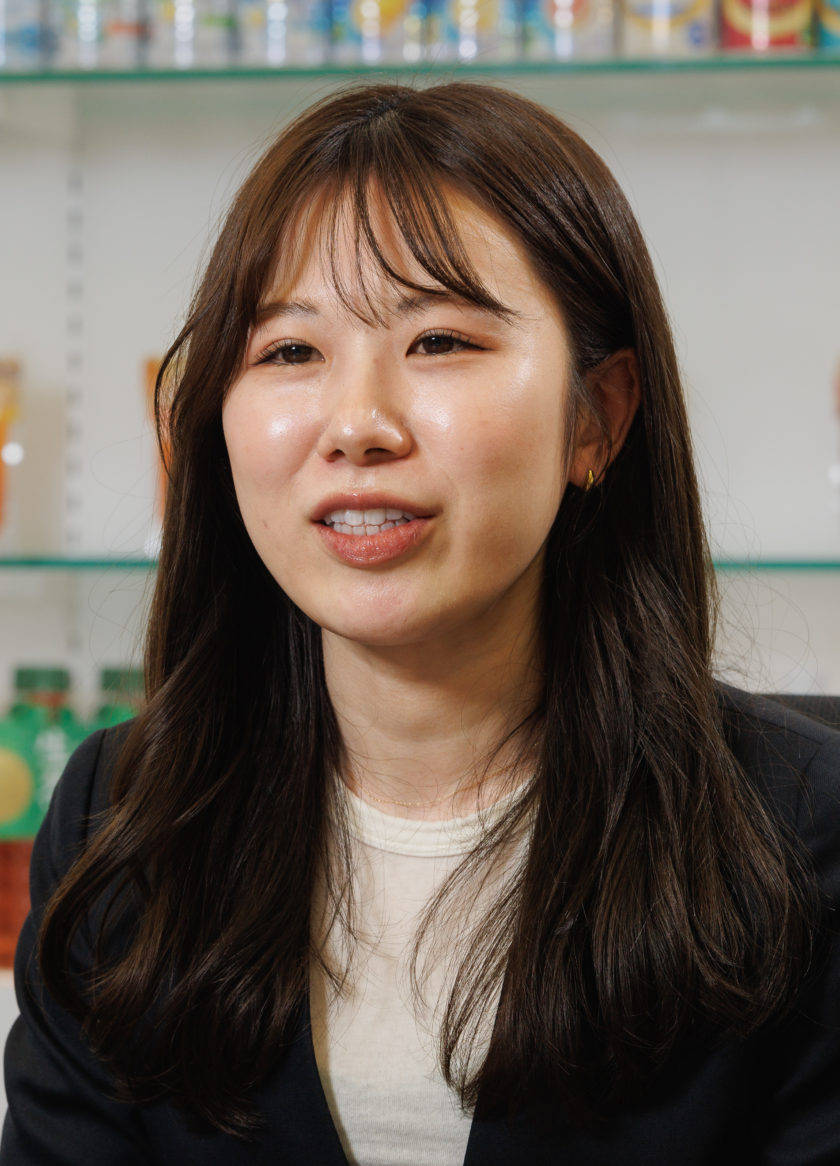
“Dream Incubator helped us with the survey design and analysis know-how. What was also reassuring was their support for internal coordination; PoC imposes new burdens, and it is not always easy to get the cooperation of the people involved within the company. Dream Incubator was willing to go the extra mile to help us out.”
One of DI’s strengths is its internal and external drive to work together on the front lines, but focusing too much on tactical discussions may risk losing sight of the original objective. To prevent this, regular strategy meetings were held to maintain a broader perspective.
In the PoC, programs were conducted on five themes (exercise, diet, weight, alcohol consumption, and sleep). Participants in each program showed improvement in their health habits, particularly the standing-out exercise program which showed a 44% improvement, and the alcohol program which showed a 36% improvement. Interestingly, it was also found that program participants increased their workplace conversations, which also led to improvements in presenteeism and work engagement. This was highlighted by Mr. Masahiro Takahashi from Kirin Beverage.
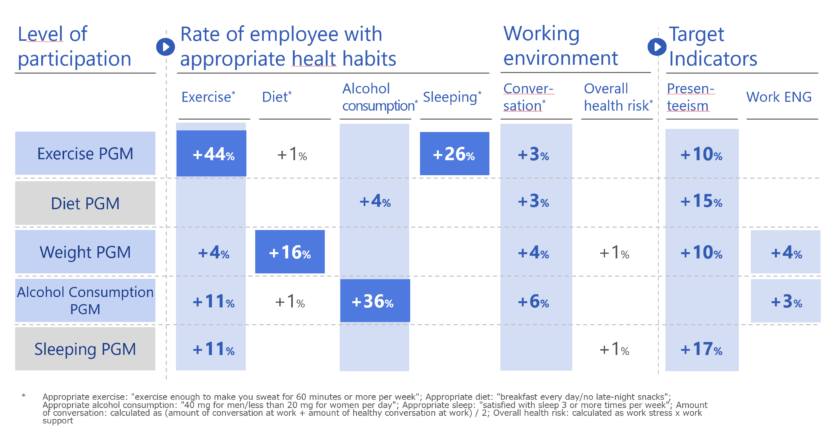
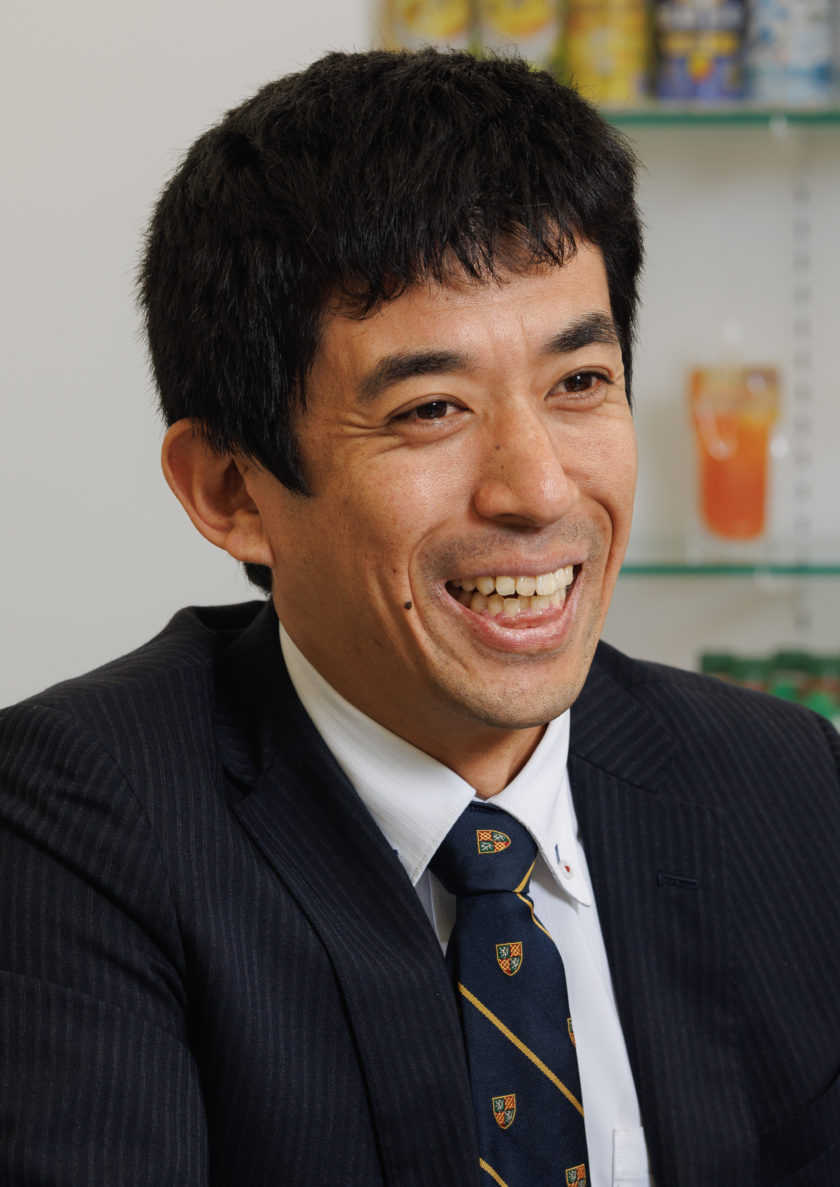
“By incorporating a team-based competitive point system into the program, we potentially sparked more conversations in the workplace. In this PoC, for every 1-point increase in conversations, we saw a 2-point improvement in presenteeism and approximately a 0.3-point boost in work engagement. When converted into productivity gains, this equates to around 200,000 yen per person annually. The significance of being able to visualize this impact is immense.”
“KIRIN naturals” has been confirmed to have a certain level of effectiveness in the PoC. Moving forward, the company plans to expand the menu of solutions to include health habit improvement programs and effectiveness validation surveys, offering them to companies dedicated to health management.
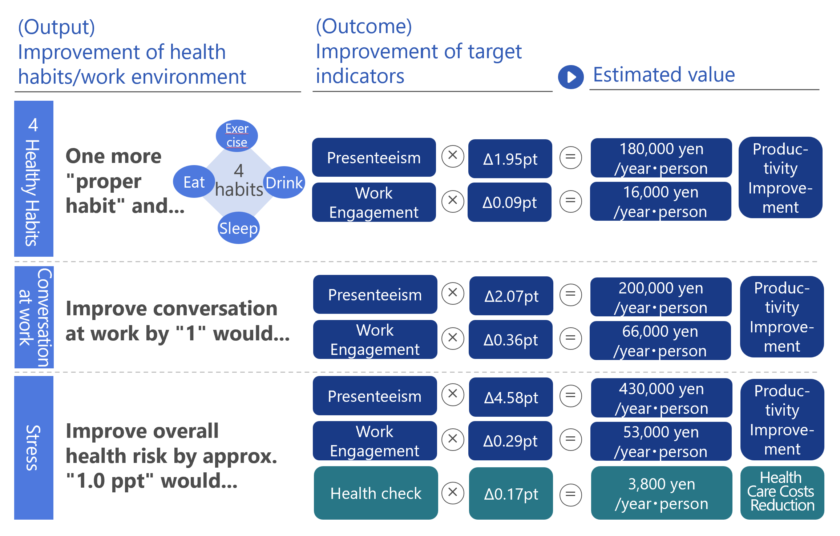
“Health management support is a BtoBtoE solution business. If successful, this can be extended to themes beyond health management,” expressed Mr. Zenda with enthusiasm, emphasizing the significance of this collaboration for DI as well.
In conclusion, Mr. Itasaka shared his aspirations. “The transition from “selling products to selling experiences” has become a buzzword. Recently, there have been many cases where simply converting products into subscriptions is termed as selling experience. In contrast, our collaboration with Kirin Beverage allowed us to collectively build solutions that authentically address user issues. Creating a solution business with a traditional manufacturer has instilled confidence in us as facilitators. Using this as a model case, we will persist in tackling social challenges,” he stated.
Advertising article published in Toyo Keizai Online on March 29, 2024.
Source (Japanese only) Link
